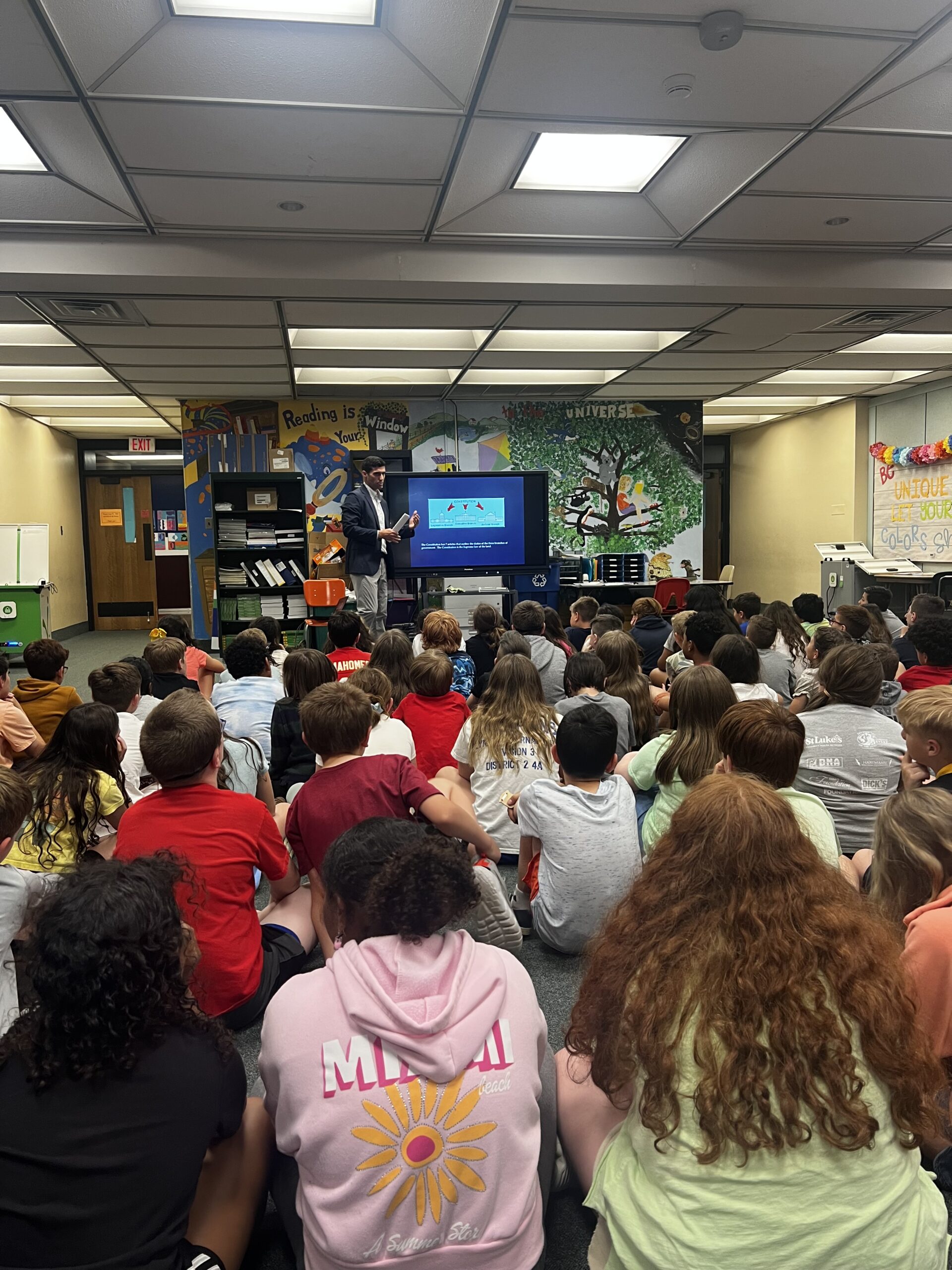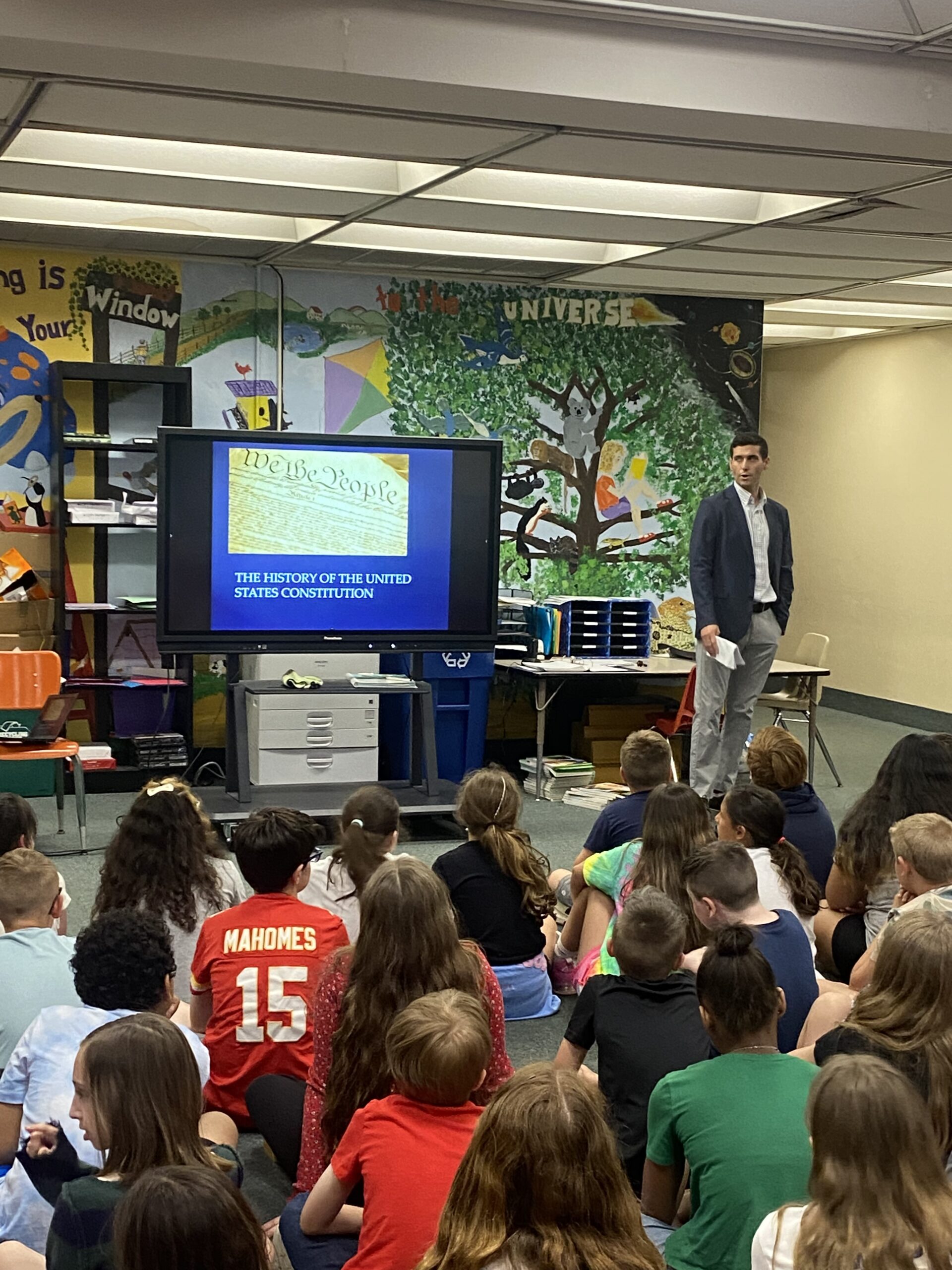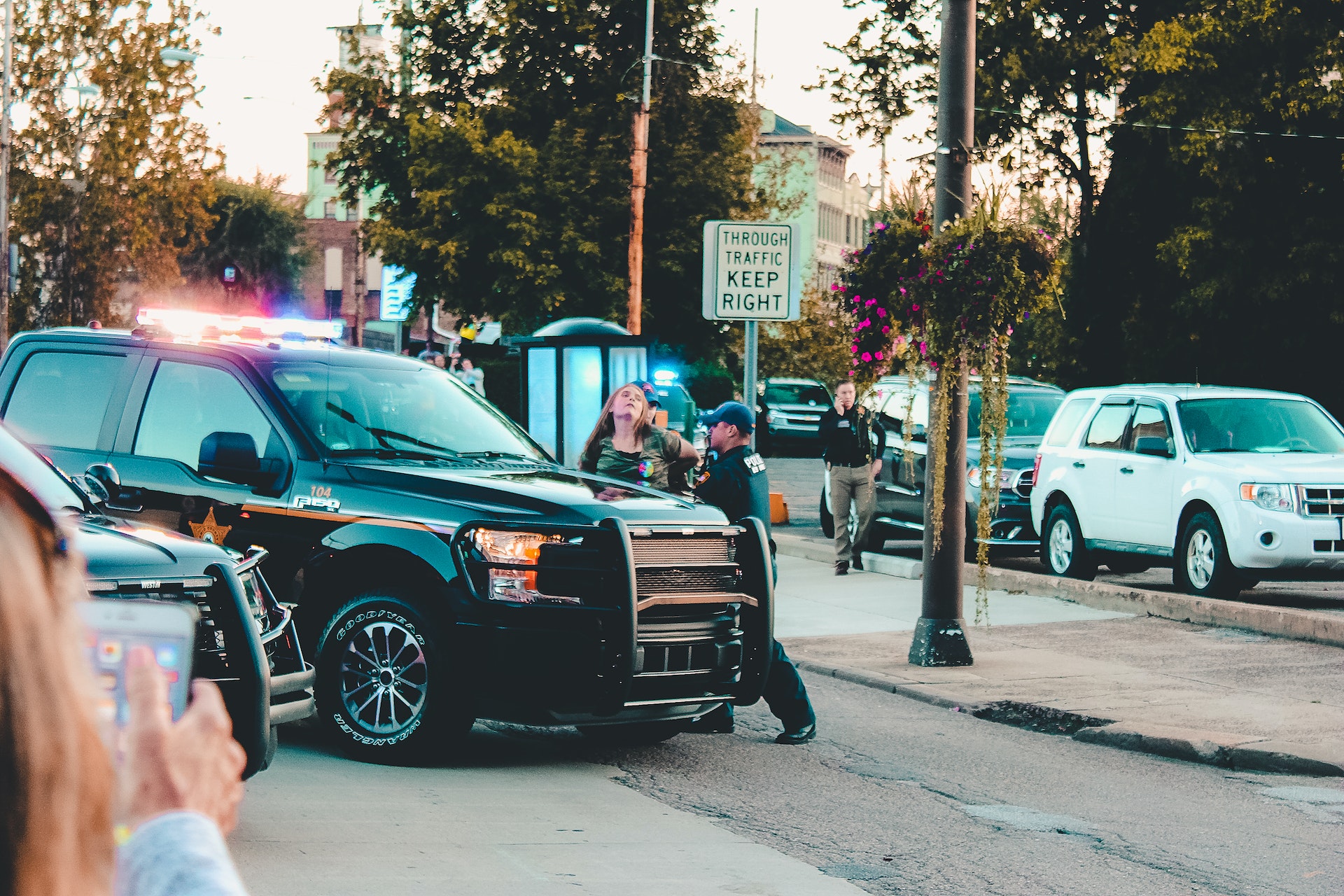Trucking Accident Attorneys with the Experience to Get You Results
As one of the country’s commercial trucking hubs, semi trucks are a common sight throughout the Northeastern Pennsylvania region. Although extensive regulations govern the trucking industry, the companies responsible for moving cargo have one major concern: their bottom line.
To protect their bottom line, it is all too easy for trucking companies and their employees or subcontractors to cut corners. When this occurs the results can be catastrophic to innocent people and their loved ones.
At O’Malley & Perry Law, our attorneys have extensive experience in the complex realm of commercial trucking accidents. If you were seriously injured or lost a loved one in a collision with an 18-wheeler, our law firm can help you pursue the compensation you deserve.
Please contact O’Malley & Perry Law at 570–348-3711 today for a FREE consultation. Our Pennsylvania truck accident lawyers serve clients in Scranton – Wilkes – Barre and all of Pennsylvania.
Do I Need a Lawyer in a Truck Accident Case?
Yes. Although it is not required that you hire a lawyer before taking legal action against a trucking company, the odds are stacked against you if you don’t have qualified representation.
Trucking accident claims aren’t like car accident cases. Although both types of claims center on collisions involving one or more vehicles, truck accident litigation is much more complicated.
There are a few reasons trucking crashes are complex, and why hiring an experienced lawyer is crucial to a successful outcome in your case:
- Your case may involve more than one defendant, including the trucker, his/her employer, the maker of a part on the rig, and possibly others
- Multiple defendants means multiple insurance companies will be involved, all of them trying to pass the buck and pay you as little as possible
- Truck drivers are subject to federal regulations as well as state and local laws; multiple agencies are likely to be involved in the accident investigation, each of them governed by their own rules, legislation, and procedures
- Injuries in truck accidents tend to be much more extensive than they are in “average” car crashes
- Accordingly, the damages sought in truck accident lawsuits tend to be much higher
All of these factors combine to make trucking accident claims complicated and often hotly contested. To get the compensation you need and deserve after being hurt in a crash with a semi truck, it is certainly in your best interest to hire a trucking accident lawyer who understands both the complexities of the litigation and the stakes to you personally.
When Should I Get a Pennsylvania Truck Accident Lawyer?
It’s a fairly safe bet that the insurance adjuster will contact you before you even have time to consider calling an attorney. The adjuster wants to head you off at the pass, and hopefully get you to sign off on a settlement as quickly as possible.
Clearly, this is the time to act, if you have any notion of contacting a trucking accident lawyer.
While calling an attorney early in the process is ultimately best, you do have some time to reflect on your situation. These conditions merit a closer look if you’re wondering whether you should call an attorney:
- A fatal truck accident.
- An accident in which you were severely injured. This includes, but is not limited to, broken bones, paralysis, amputation, burns, blindness, or long-term or permanent physical impairment.
- There’s even a slight chance that you could be found at fault.
- The crash involved other vehicles.
- The crash occurred in a construction zone or school zone.
- The official accident report is incomplete or does not accurately describe what happened.
An 18-wheeler accident attorney can also help you get to the bottom of what caused the truck accident in the first place. There are many causes of trucking accidents, and being able to sort through all of them and pinpoint the exact cause or causes often takes an expert. The better the expert, the better they’ll be able to find all the causes. Many people can speculate as to the causes, but only an experienced Scranton trucking accident attorney will be able to provide hard evidence.
Like any vehicle accident, a variety of factors can cause a semi truck collision. Negligence on the part of the trucker can take different forms, including:
-
Truck Driver Drowsiness
Drowsiness affects reaction time, threat awareness, and cognitive reasoning. For these reasons, the Federal Motor Carrier Safety Administration regulates the number of hours a truck driver may drive per day (11) and per seven-day week (60).
Drivers are often pressured by their employers to meet delivery schedules that are virtually impossible to meet without going over the stated hourly limitations. This leads to illegal overtime driving, falsified driver’s logs, and, all too often, accidents. Drowsiness may also be attributed to the age of the driver, his general health, medications taken (prescribed and otherwise), and the amount and/or quality of sleep during downtime.
This is a salient point in many lawsuits. Being able to prove that a driver operated a tractor-trailer rig knowing he had not logged the legally required downtime is advantageous to winning a case. A second factor in the equation is whether the driver felt compelled to break the rules of the road because of pressure from his employer to deliver the goods on a tight schedule.
-
Impaired Truck Driving
It’s a frightening thought that operators of 80,000-pound monsters on our highways could be buzzed on anything from alcohol to opiates, but it happens. In the most recent Large Truck and Bus Crash Facts Report, data collected by the Federal Motor Carrier Safety Administration (FMCSA) revealed that 4,600 truck drivers involved in fatal crashes had a blood alcohol concentration of 0.01 or higher – 2.5 percent of truck drivers in these accidents were legally intoxicated.
Truck drivers have aches and pains, as we all do, and many suffer from chronic conditions for which they have been prescribed powerful painkillers. These painkillers often have side effects and can lead to impaired driving. Lack of regard for these side effects becomes a distinct liability in court cases. Over-the-counter medications are also noted in a number of big rig accidents.
-
Trucks Speeding & Driving Too Fast for Conditions
Just about every motorist can relate to the sight of a big rig zooming past slower moving traffic in situations that should have called for a lighter touch on the accelerator. Technically, it’s not speeding, unless the truck exceeds the posted speed limit, but it is dangerous and unlawful. It’s a ticketable offense known as driving too fast for conditions.
According to the Federal Motor Carrier Safety Act (“FMCSA”) conditions that warrant driving significantly below the posted speed limit include:
- Wet or icy roads
- Fog
- Uneven roads
- Construction zones
- Curves
- Intersections
- Pavement breaks
- Gravel roads
- Heavy traffic
In the FMCSA report cited, “Speeding of Any Kind” is the leading factor in truck accidents, accounting for 6.5% of fatal collisions.
-
Reckless, Vindictive Truck Driving
According to the FMCSA, aggressive driving / road rage happens but was only a factor in less than one percent of fatal truck accidents.
Proving that the trucker drove aggressively, or was under the influence of road rage, is a tricky task in the courtroom – one that often needs corroboration from third-party witnesses.
-
Distracted Truck Driving
Truck drivers text while driving, talk on the phone while driving, and surf the internet while driving. According to the FMCSA, nearly 6% of fatal truck accidents involved some form of driver distraction. These include:
- Distraction by a person, object, or event outside the vehicle
- Reaching for objects inside the cab
- Talking on the phone
- Dialing a phone number
- Using a mobile device (texting, using apps, etc.)
- Eating or drinking
- Adjusting the audio and climate controls
- Daydreaming
- Smoking
Truck accidents that occur because the truck driver was distracted can be the worst of the worst in terms of death, injuries, and property damage. Drivers have been convicted of murder because of their behavior behind the wheel. Penalties for commercial drivers who text while operating a moving vehicle are getting stricter, but there are variances by state.
-
Other Types of 18-Wheeler Truck Driver Error
Causes for accidents are numerous, but the most prevalent ones not already mentioned are:
- Distracted driving, including texting, eating, using the radio, and other activities behind the wheel
- Lane departure
- Failure to yield
- Overcorrecting
- Obscured vision
- Failure to obey traffic signs and signals
- Following too closely (tailgating)
- Improper passing
- Failure to execute turns and lane changes properly
In many cases, a combination of bad decisions and unsafe behaviors lead to truck accidents. If the driver is fatigued or under the influence, it is more likely that he or she will drive too fast or make reckless decisions that cause an accident.
These decisions, however, don’t happen in a vacuum. The truck driver may be following the instructions of his or her employer, which in turn widens your case to include additional defendants.
How Does Negligent Truck Maintenance Contribute to Accidents?
A sobering reminder that things don’t always work right on big rigs is the “runaway truck ramp” sign on highways with steep grades. This is a common sight in mountain country, where brake failure on steep hills is a frequent reality.
An 80,000-pound runaway truck is a frightening thought and a dangerous thing, but brake failure is an unfortunate condition that truck drivers and their employers must contend with. Brake failure can be due to overheating, loss of hydraulics, or several other mechanical afflictions. Brake failure due to poor maintenance should never happen, however. If a truck’s brakes or trailer brakes are not maintained, the consequences – usually to other drivers on the road – can be catastrophic.
The FMCSA regulates the safety and maintenance requirements for equipment and components on 18-wheelers and other commercial vehicles. Individual states may have special regulations as well.
-
Brakes on Semi Trucks
An 18-wheeler truck must be equipped with a signal that warns drivers of brake failure. For vehicles built since 1973, the signal must be visual – generally a dashboard warning light. Air brakes, whether on the truck or the trailer, must have a working pressure gauge that is easily detected by the driver.
Based on federal recommendations, the braking system must have automatic adjustment to compensate for wear of brake linings, drums, or discs. Manual inspection of the braking system is required, and paperwork regarding repairs, replacements, or new installations of brakes must be made available.
-
Safety Devices on Semi Trucks
Safety devices includes coupling devices that ensure that trailers don’t separate from the vehicle that’s towing them and stabilizers to reduce lateral movement of the trailers.
-
Big Rig Load Securement
Shifting cargo has caused a number of 18-wheeler accidents. Accidents in which cargo shifts or falls out of the trailer add a complex layer to the insurance settlement.
In most states, if the cause of an accident can be clearly determined as a shifting load, the company responsible for loading the trailer is liable. However, litigating a case contending that the accident was caused by a shifting load is often a daunting task.
There are standards to point to, such as the requirements set forth by the FMCSA regarding weight distribution, weight support, space management, tie downs, center of gravity, dunnage (material that fills spaces between articles of cargo), and weight limits. The load has to remain stable during all movements of the trailer, whether planned or unplanned. This includes panic stops, sudden lane departures, sharp turns, sloping pavement, uneven pavement, high winds. and anything else that acts upon a trailer on the road.
Different types of cargo need different types of securement. A load of logs will need different types of tie downs than a load of potato chips. The FMCSA document that lays out all these regulations is extensive, and any discrepancy can be a major point in determining liability in an 18-wheeler crash.
Who Are the Liable Parties in a Trucking Accident Case?
A key part of investigating any semi truck accident is identifying the parties responsible. Typically, this goes well beyond the driver at the scene and encompasses the company that hired the driver, as well as other companies involved in the operations of the rig.
At O’Malley & Perry Law, we investigate and take action against all parties whose negligence contributed to your injuries in a truck accident, including:
The Trucking Company
Delivering cargo is a business of tight deadlines. Everyone in the organization, from supervisors to executives, may prioritize the bottom line at the expense of their drivers’ – and the public’s – safety.
Negligence on the part of the trucking company may involve:
- Requiring drivers to work beyond the mandated hours of service limits
- Coercing drivers to keep inaccurate service and maintenance logs
- Hiring unqualified or inexperienced drivers who don’t have proper licensure
- Failing to screen drivers for alcohol and drug use or medical conditions that may compromise their ability to operate rigs safely
- Not providing drivers with proper training
- Failing to hold the proper type and amounts of insurance coverage
These actions may not be obvious at the scene of the crash, and the trucking companies will make every effort to cover their tracks. O’Malley & Perry Law will perform a comprehensive investigation to unravel the role corporate negligence may have played in the truck accident.
Trucking Maintenance Crews
The question of who services the semi may play a role in your truck accident claim as well. If the tractor and/or trailer is the property of the trucking company, in-house maintenance workers or a contracted third party may be responsible for the upkeep. If the trucker is an independent contractor who owns the rig, however, he or she is required to keep the truck in safe working order by taking it in for tuneups and repairs.
With 18-wheeler trucks traveling thousands of miles each year, routine maintenance and replacement of worn out parts is crucial to the safe operation of any vehicle. If the truck accident was the result of a tire blowout or other failure related to negligence in maintenance and repairs, you may be entitled to damages from the individual or company that services the rig.
Shipping Companies
Trucks may visit multiple businesses and distribution centers in the course of a haul. As the crews work to load and unload cargo, it is important for them to exercise caution in distributing the weight and securing items so they don’t shift in transit.
Trailers with uneven distribution of weight are at risk of tipping over, potentially onto a vehicle on either side of the rig. Shifting loads may cause the truck to jackknife or cause cargo to fall out into the road.
One of the major factors investigators will assess is the role of unsecured or poorly balanced loads in the truck accident. Our lawyers will review these reports and gather additional evidence to ensure that the party who loaded the truck is held accountable.
Parts Manufacturers
Defective vehicle components can play a major role in truck accidents. The failure of a part on the tractor or trailer (or both) can cause the driver to lose control of the vehicle, resulting in a wreck.
Product liability lawsuits in general require extensive investigation of the design and manufacturing of the failed part, as well as the actions the company that makes the part takes to warn the public. Sadly, in many cases corporations make every effort to protect their revenues at the expense of public safety.
Like with trucking companies and other parties, many of whom have billions of dollars and teams of lawyers on their side, O’Malley & Perry Law aggressively litigates against negligent companies that manufacture and sell defective trucking parts. We partner with teams of experts to analyze what happened, then take action on your behalf.
What Injuries Occur in Truck Accidents?
The potential for catastrophic injuries in a truck accident is very high. After all, commercial trucks can weigh up to 80,000 pounds, creating force in an accident that even a heavy-duty pickup or SUV has no hope of withstanding.
As a result, serious injuries are the rule rather than the exception. Some of the severe injuries we see at O’Malley & Perry Law in truck accident cases include:
- Traumatic brain injury
- Spinal cord injury
- Ruptured discs and other neck and back injuries
- Loss of a limb
- Burns
- Disfigurement and scarring
- Internal injuries, including damage to organs and internal bleeding
- Multiple bone fractures
- Damage to muscles, ligaments, tendons, and other soft tissue
The most tragic outcome in a trucking accident is the death of one or more people. Unfortunately, fatalities happen all too often in collisions with big rigs, with the driver and occupants of passenger vehicles the most likely to be killed.
What Compensation Can I Recover in a Truck Accident Claim?
Serious injuries require extensive treatment. After a truck accident, you may require hospitalization, multiple surgeries, and months of physical therapy. Even with timely intervention and the best medical care, you might experience lifelong physical and cognitive deficits, not to mention the emotional burden of adjusting to your new circumstances. Meanwhile, as the medical bills after a truck accident pile up, many victims are unable to pay because their injuries make it impossible for them to return to work.
If this is the situation you are facing in the wake of a truck accident that wasn’t your fault, O’Malley & Perry Law can pursue full compensation on your behalf. You may be eligible for damages such as:
- Medical expenses
- Lost wages
- Diminished future income, if the injuries compromise your ability to make a living
- Pain and suffering
- Special damages for home modifications, hired help, and compensation for other costs unique to your situation
- Impact to relations with your family (broadly known as “loss of consortium”)
Depending on the facts of the truck accident, the jury may also award you punitive damages. This form of compensation is reserved for situations of extreme recklessness, outrageous conduct, willful or wanton disregard for safety. Punitive damages are not commonly awarded, but when they are it sends a message to the defendant that their conduct is unacceptable.
If you lost a loved one in a truck accident, O’Malley & Perry Law can pursue damages through a wrongful death lawsuit on your family’s behalf. Spouses, children, and parents of the deceased are allowed to file a wrongful death lawsuit in Pennsylvania for compensation of economic losses, including lost wages and the expenses of burial, cremation, and funeral services, as well as non-economic damages tied to the significant emotional toll of the loss.
How Do I Prove My Truck Accident Case?
If possible, taking the following steps at the scene of the semi truck accident can immediately benefit your claim:
- Taking photos of the accident scene, the damage to the vehicles involved, and your injuries
- Interviewing witnesses
- Collecting the truck driver’s information (and the information for any other drivers involved)
- Providing a statement to the police
Unfortunately, the reality is that many truck accident victims need to be taken to the hospital immediately due to the serious injuries they suffer. If this is the case for you or your loved one, it is in your best interest to contact a truck accident lawyer as soon as possible.
Our lawyers will photograph the scene, identify potential witnesses, and collect information on the truck driver, the trucking company, and other parties on your behalf. Our investigation will also include:
- Expert examination of the vehicles
- Meticulous review of the trucker’s log books and other documentation
- Obtaining and reviewing all local, state, and federal accident reports
- Obtaining electronic evidence, such as cell phone records, GPS coordinates, data from the semi truck’s “black box” (see below)
- Hiring expert witnesses to review the evidence and provide professional opinions
The “Little Black Box” on Semi Trucks
Officially known as the digital event recorder or electronic logging device (ELD), the “little black box” can be found in commercial aircraft, trains, cruise ships, passenger cars, and semi trucks. Each ELD is customized for the type of vehicle in which it is installed to record data from various sensors.
The ELD can be a critical tool in analyzing the cause of a truck crash, and its data often becomes evidence in court cases. It records such information as:
- Driving speed
- GPS data
- Position of the steering wheel
- When brakes were applied and the suddenness with which they were applied
- Seat belt usage
If you’re injured in an accident with an 18-wheeler, don’t expect the trucking company or its insurance representative to voluntarily share the data from the truck’s black box; you shouldn’t even expect them to even preserve it.
This is one of the reasons why hiring a trucking accident attorney immediately after an incident is advisable. Your lawyer can obtain a court order to preserve the black box data and arrange for a joint viewing with the other party’s attorney.
Truck Dash Cams: Truck Driver’s Friend or Foe?
A quick glance at YouTube or any video-sharing website will demonstrate the prominence of dash cams on roads worldwide. Many trucking companies and independent drivers employ dash cams to protect themselves against false claims, and some firms use dash cams that face the driver to show his/her reaction to traffic situations.
Dash cams can record action ahead of the truck, behind it, or even to the side. Sometimes they show that the truck driver was at fault. Sometimes they show that the car driver was at fault. Sometimes it’s hard to tell.
Trucking companies love the dash cam – when it works in their favor, of course. When the footage shows negligence on the part of the truck driver, however, the company will almost certainly try to suppress it.
As with black box data, hiring an attorney early in the process increases the chances that the dash cam footage can be made available for review.
How Long Does It Take to Resolve a Pennsylvania Truck Accident Claim?
The answer to the often-asked question “How long does it take to settle a car accident with a truck?” is elusive. It can range from a few weeks to well over a year to resolve, depending on several factors – most of which are out of the plaintiff’s control.
It’s in the best interests of the insurance company, whether it’s yours or the trucking firm’s, to settle quickly, before long-term health issues become apparent. Conditions that develop after a truck accident lawsuit is settled generally become the financial responsibility of the plaintiff.
All U.S. states have a deadline by which to file a lawsuit regarding a trucking accident, but they’re typically very generous and allow plenty of time for the plaintiffs to recover from their injuries, collect medical bills, gather data regarding the accident, determine their options for returning to work, and review the case with their attorney.
Delays in the case can be the result of medical complications, government-based accident investigations (often the cause of long delays), witness depositions, and research into the trucking company’s adherence to safety regulations, vehicle maintenance, and driver policy.
How Our Pennsylvania Truck Accident Lawyers Can Help
At O’Malley & Perry Law, our goal is to hold negligent parties accountable for the harm they cause our clients. In 18-wheeler accident cases, this often means taking on multi-billion dollar trucking companies and their insurance companies.
We know the tactics employed by these corporations to underpay and deny legitimate accident claims. When you hire O’Malley & Perry Law, our lawyers will ensure that these companies know they can’t take advantage of you.
Our team includes attorneys, business strategists, and other experts who take a multidisciplinary approach to building your case. We calculate every cent you are owed for the injuries you have suffered, and we aggressively pursue the just compensation you deserve..
We are passionate about pursuing results that other law firms can only imagine because we take the time to get to know each of our clients personally. We feel the struggles you and your family are facing, and this motivates us to do the best job possible for you.
Contact O’Malley & Perry Law today for your FREE consultation 570–348–3711

MATTHEW J. PERRY
Partner
If you find this content valuable, please share with colleagues and friends on your favorite channel below:
How Do I Know if I Have a Personal Injury Case?
If you have been injured as the result of the negligence of another person or entity, liability and the damages are the two main ways to establish if you have a case. In order to file a personal injury claim in Pennsylvania, the plaintiff must be able to prove that the defendant is liable for the injuries and if so what are the nature and the extent of the damages the plaintiff has as result of the subject incident. If these two elements can be proven you may have a case and we recommend you contact a personal injury lawyer to discuss it.
How Do I Pick the Right Personal Injury Attorney for My Case?
When choosing a personal injury lawyer, it’s important to ask the right questions to make sure you find someone who is experienced, qualified, and a good fit for your needs. Here are 10 questions you might want to consider asking during your consultation:
- What is your experience handling personal injury cases?
- What percentage of your practice is devoted to my type of case, and how many cases like mine have you handled in the past?
- What is your success rate in settling or winning personal injury cases, and what types of settlements or verdicts have you obtained for clients with similar injuries to mine?
- How do you communicate with your clients and keep them informed about their case?
- What fees do you charge, and how are they structured? Do you work on a contingency fee basis, which means you only get paid if you win the case, or do you charge hourly or flat rates?
- Who will be handling my case, and will it be you or someone else in your firm?
- How long do you anticipate my case will take to resolve, and what steps will you take to move it forward as quickly as possible?
- Can you provide me with references or testimonials from previous clients?
- Will you be able to negotiate with the insurance company on my behalf, or do you anticipate taking my case to trial?
- What is your approach to settlement negotiations, and how do you balance the need to reach a fair settlement with the need to protect my interests?
What Damages are Subject to Compensation in a PA Personal Injury Case?
While every case is different, the most common damages claimed in a Pennsylvania personal injury lawsuit are the pain and suffering endured as a result of the injury, the loss of wages related to the injury and medical expenses (current and future).
How is the Pain and Suffering Compensated in a Personal Injury Claim in Pennsylvania?
Pain and suffering are non-economic damages sustained by the negligence of the defendant. Under PA Law the amount that can be recovered for pain and suffering varies greatly from case to case. If your case is settled out of court, your attorney will negotiate with the defendant the amount of the compensation for pain and suffering. The value of your case depends on many factors including the liability of the negligent defendant, the severity and permanency of your injury and the loss of income as a result of the injury. In evaluating your case your attorney will compare monetary awards in similar cases. If your case goes to trial, the jury will decide what amount will be awarded for pain and suffering. Your attorney will present expert testimony by among others, physicians, economists and life care planners. Each case is of course different and the experts retained by your attorney will depend on the facts of the particular case.
How Much Does a Consultation With a PA Personal Injury Attorney Cost?
A consultation with a personal injury lawyer to discuss a potential case is usually free as personal injury lawyers usually handle cases on a contingent fee basis. It means that a personal injury lawyer doesn’t charge by consultation but will take a percentage on the amount recovered if they pursue a case on behalf of you or your loved ones, usually between 33.33 and 40% depending on the type on lawsuit.
How Can a Personal Injury Lawyer Help?
Throughout the years, our personal injury attorneys have successfully represented individuals and families in Pennsylvania who suffered injury by the negligence or recklessness of others and we understand how devastating and overwhelming it can be to deal with mounting costs and suffering caused by serious personal injury. We retain the very best experts including accident reconstructionists, biomechanical engineers, medical doctors, forensic pathologists, economists and other experts from the various disciplines involved in the case because every personal injury case requires the plaintiff to prove both liability and damages. Each case has its own set of associated costs, including pain and suffering, lost wages, the cost of care and many other monetary costs and these must be clearly demonstrated. Our trial lawyers will document and preserve any evidence necessary to prove your case and meticulously prepare your case for trial.
How Can Social Media Affect Your Personal Injury Case?
Social media can have a devastating effect on the outcome of your case. Anything that you post on social media while your case is ongoing can be used against you by the defense attorney. We always ask our clients not to discuss their case on social media and avoid posting pictures of their activities while their cases are ongoing. You should also be mindful of what your family and friends are saying or posting about you on social media.

MATTHEW J. PERRY
Partner
If you find this content valuable, please share with colleagues and friends on your favorite channel below:
When Do I Need an Attorney for a Car Accident Claim?
Here are some factors to consider when deciding whether you need an attorney for a car accident claim.
How serious are your injuries? How long did it take you (or will it take you) to recover?
First, it’s important to remember that every case is unique, and so are the ways people define a “significant” loss or “high” costs. What is a devastating loss to one person may not be to another.
To give a general idea, if you had (or have) a serious injury that:
- Affected you for a long time
- Required a visit to a doctor or other healthcare professional
- Caused you to be hospitalized
- Caused you to miss work or school
- Resulted in a lost income
- Resulted in extensive medical bills
- May be long-term (lasting about a year or more) or permanently disabling
… you may have a significant claim and should at least consult with an attorney. Even if you ultimately decide not to hire, a consultation can help you understand your options.
The more you have at stake, the better it is to have an attorney’s help. Insurance companies have attorneys of their own, with the goal of reducing settlement amounts or denying claims. The higher the amount of the claim, the harder the insurance companies and their attorneys fight.
For claims involving long-term or permanently disabling injuries, you really need an attorney. Such injuries can affect not only your quality of life, but your livelihood and ability to work. You may incur future medical expenses related to your injury and complications may develop. Proving these types of injuries is complex and challenging, and should be handled by an experienced personal injury attorney.
Is fault contested in your accident? Is the other driver’s insurance company disputing liability and refusing to pay?
If the other driver caused your accident but they and/or their insurance company won’t admit it, there’s immediate cause for concern.
When an insurance company disputes their policyholder’s liability, they are essentially saying that their policyholder is not at fault and they are not responsible for paying your damages.
This happens because it may not be clear who was at fault. A police report may inaccurately describe the accident. There may be discrepancies among witnesses. Or, the insurance company may simply believe that you don’t have enough evidence that their policyholder was at fault.
When fault is contested, you must prove that the other driver caused the accident or you will lose the claim. An accident attorney can help you provide evidence and prove the other driver was at fault.
Are you concerned the settlement offer you received from the insurance company is too low?
It’s no secret that early settlement offers from insurance companies can be low. Many people accept them, even if they have misgivings, just to move on because they don’t like the hassle of dealing with long drawn out insurance claims. However, it’s often worth taking a deeper look, especially if you might have a large claim.
An attorney can review your settlement offer to determine if it is fair. If it is not, they can negotiate with the insurance company in an effort to raise the settlement amount. In the event an acceptable agreement can’t be reached or the insurance company refuses to negotiate, an attorney can file a lawsuit on your behalf.
Is your case going to court?
If you have to take your case to court, and small claims court isn’t an option, you’ll want to have an attorney in your corner.
While small claims court has simplified rules that make it easy for individuals to present their claims without a lawyer, litigation involves formal court rules, protocol and technical rules of evidence. An attorney understands these rules and can make sure you’re represented fairly.
Other times to contact an attorney:
- A death occurred as a result of the accident
- Pedestrians were involved
- The accident happened in a construction zone
- You or the other driver doesn’t have insurance
- Your insurance company claims that you hadn’t paid your premium, but you had
- You’re at fault or partly at fault, and you’re concerned your liability insurance won’t cover the damages
- Your insurance company starts acting cagey and non-communicative
- Your insurance company gets its own attorneys involved
When in doubt, call an attorney.
Many accident attorneys provide free consultations, and you’re not under any obligation to hire them. This can be a way to see if you may have a personal injury claim, or if there are potential red flags in your case. When it comes to car accident claims, it’s always better to err on the side of caution.

MATTHEW J. PERRY
Partner
If you find this content valuable, please share with colleagues and friends on your favorite channel below:
PENNSYLVANIA BIRTH INJURY ATTORNEY
At O’Malley & Perry Law, each Scranton Pennsylvania birth injury attorney and expert medical consultant on our team pride themselves on helping families uncover whether medical errors were responsible for their child’s devastating birth injuries. Improper prenatal care and negligent medical professionals can cause errors during the delivery process leading to birth defects such as Cerebral palsy, Erb’s palsy, and many additional forms of birth defect.
Furthermore, if a doctor or nurse or other treatment provider fails to recognize fetal distress or responds too slowly, your child could suffer lifelong and irreversible disabilities. Our Scranton – Wilkes – Barre birth injury lawyers and medical consultants have experience in handling and understanding these extremely complex medical issues.
WHAT IS BIRTH-RELATED MEDICAL MALPRACTICE?
Birth related injuries and/or issue are not always the result of malpractice. There are instances where a child’s condition is the result of genetics, such as a chromosomal disorder; however, far too often these life-altering conditions are the result from medical errors during the birthing process. For example, significant injuries can occur when the doctor or nurse fails to read (or inaccurately reads) the fetal monitor strips. If the strips indicate fetal distress, then the doctor must act immediately, otherwise, the fetus could be deprived of its vital oxygen supply. As a result of this delay, the baby can sustain brain damage that could have been avoided.
DELIVERY ERRORS THAT MAY CAUSE BIRTH INJURIES
- Failure to monitor fetal strips
- Misread fetal strips
- Improper use of forceps or vacuum
- Failure to perform a cesarean section
WHY CHOOSE O’MALLEY & PERRY FOR BIRTH INJURY CASES?
- Free Consultations Available – Call us any time(570) – 348 – 3711;
- Attorney Michael P. Perry has won millions for clients;
- No matter the details the Attorneys at O’Malley & Perry gives victims and their families undivided attention.
WHAT ARE THE MOST COMMON BIRTH INJURIES?
The most common injuries resulting from an error during the delivery process are Cerebral palsy, Erb’s Palsy, and Brachial Plexus Palsy. While physical therapy or speech therapy can help improve a child’s development, the impact of Cerebral palsy and other birth injuries are typically permanent. If your child sustained an injury during birth and you suspect medical negligence, speak with a qualified birth injury attorney and our staff at O’Malley & Perry Law as soon as possible. Schedule a free consultation with O’Malley & Perry Law, so that our attorneys and expert medical consultants can give you options and will not charge a fee unless we win.
HOW DOES A BIRTH INJURY OCCUR?
The brain is the primary center for regulating and coordinating all body activities. Essential to the regulation and coordination of these body activities is the transmission to the brain of oxygen obtained through air inhaled and exhaled during the act of respiration. Traumatic birth injury is a broad description which is used to describe both avoidable and unavoidable mechanical and anoxic trauma to the brain of an infant during labor and delivery.
- Anoxic trauma: involves a situation in which there is diminished oxygen in the arterial blood supply despite the infant’s otherwise-normal ability to carry oxygen. The diminished oxygen in the blood supply may be due to a reduced oxygen supply, respiratory obstruction, or inadequate respiratory movements. This can result in serious conditions, including Cerebral palsy.
- Mechanical trauma: involves some physical act to the body, usually the skull of the infant, which prevents the needed transmission of oxygen to the brain of the infant.
HOW TO PROVE NEGLIGENCE IN BIRTH INJURY CASES?
By reviewing the prenatal and delivery records, we can often establish the doctors were negligent in preventing cerebral palsy and brain damage. We typically review lab results and fetal monitoring strips with the assistance of our expert medical consultants. If a child suffers a period of oxygen deprivation, this can result in fetal distress which, if a doctor doesn’t act quickly, may lead to permanent damage or death.
Trained staff must be available to activate the fetal heart monitor, inspect and analyze the strip continuously and intervene where fetal distress is observed. Cardiac arrhythmia (irregular heartbeat), bradycardia (slow heartbeat), and tachycardia (rapid heartbeat) are all signs of fetal distress.
Meconium, or the fetal feces, can also cause fetal distress. A Pennsylvania birth injury attorney must determine if there is resulting fetal hypoxia which is insufficient oxygen to the tissues. A doctor must always determine if there is an abnormal blood pH. There is a decrease in the blood pH, or acidosis when there is a buildup of acid level in the blood due to the fetus not receiving enough oxygen. There is a long history of linking oxygen deprivation and the pH reading to babies born with brain damage. Too low a pH level will establish fetal distress and in many cases, an immediate C-section should follow.
WHAT IS CEREBRAL PALSY?
Cerebral palsy, or CP, is a medical term used to describe a group of disorders affecting body movement and muscle coordination. Cerebral palsy is caused by damage to the brain during pregnancy, delivery or childhood. This damage interferes with messages from the brain to the body, and from the body to the brain with effects ranging from slight awkwardness of movement or hand control to virtually no muscle control greatly affecting movement and speech. The location of the brain injury influences the effects of the disorder, which can include:
- Mental retardation
- Seizures
- Impairment of speech, hearing or sight
- Abnormal perception and sensation
- Problems in gait and mobility
- Involuntary movement
- Muscle spasm or tightness
HOW DOES CEREBRAL PALSY OCCUR?
Any damage to the developing brain, whether caused by genetic or developmental disorders, injury or disease, may produce Cerebral palsy. Often, medical malpractice plays an unfortunate role in the injury of a fetus during pregnancy or of an infant during delivery. The failed diagnosis of complications during pregnancy resulting in the harm to a baby is one example of medical malpractice. Another common example of malpractice that our Pennsylvania birth injury lawyers have seen is a labor which is allowed to last too long that often results in brain damage, as poor oxygen supply destroys brain tissue. Additional examples of malpractice are how the side effects of anesthetics and analgesics can negatively impact an infant causing brain injuries.
TYPES OF CEREBRAL PALSY
There are four types of Cerebral palsy:
- Spastic cerebral palsy
- Athetoid or dyskinetic cerebral palsy
- Ataxic cerebral palsy
- Mixed cerebral palsy – which combines the three types of cerebral palsy above
WHAT IS BRACHIAL PLEXUS PALSY?
The brachial plexus is a group of nerves that run from the shoulder to the spine. These control muscle movement in the hands, arms, and shoulder. Sometimes, when a doctor is negligent by not providing proper obstetrical care, damage to the nerves can result. These injuries usually occur during the natural delivery of a larger infant. When the baby is too large to pass through the mother’s pelvis, his or her shoulder may become lodged behind the mother’s pubic bone after the head has been delivered. Many times the doctors attempt to continue with a natural delivery, as opposed to a C-section and can stretch the neck excessively causing nerve damage.
THREE TYPES OF BRACHIAL PLEXUS INJURIES:
- Stretch – which varies in degrees of intensity; however, nerves in plexus are often compressed due to swelling or bruising from birth trauma of the shoulder getting caught on the pelvic bone. Stretch injuries will spontaneously recover in 1-2 years of age with 90-100% return of function. Neuroma, which is scar tissue that compresses the nerves, may occur also and surgical intervention is needed to remove it.
- Rupture – nerves are torn at either one or several places in the plexus requiring surgery for the nerves to recover.
- Avulsion (the most severe injury) – nerves are pulled from the spinal cord as evidenced by a totally flaccid extremity, which requires surgery and possibly muscle transfer to gain function. Horner’s syndrome may be present if this is involved.
Call O’Malley & Perry Law for your free consultation today.

MATTHEW J. PERRY
Partner
If you find this content valuable, please share with colleagues and friends on your favorite channel below:
Can You Sue for Food Poisoning?
According to the Center for Disease Control and Prevention (“CDC”) about 48 million people each year become sick as a result of food poisoning. That’s one out of every six Americans!
A total of 128,000 people are hospitalized due to their foodborne illness, and 3,000 people pass away after becoming sick. See article at https://wwwnc.cdc.gov/eid/article/19/3/11-1866_article.
Food Poisoning: What is it?
Food poisoning refers to a foodborne illness that you develop after consuming contaminated food.
Some common examples of food poisoning include:
- Campylobacter
- Botulism
- E. coli
- Hepatitis A
- Listeria
- Norovirus
- Salmonella
Food poisoning can cause various symptoms including vomiting, diarrhea, dehydration, infection, fever, difficulty swallowing, muscle weakness, abdominal pain and difficulty breathing.
Although uncommon, in severe cases, food poisoning can be deadly.
How Does Food Poisoning Occur?
Food poisoning or foodborne illness occurs when food is contaminated by bacteria that contaminates your food and make you sick when you consume it.
There are many potential causes of this contamination that can result in food poisoning including:
- Cross contamination, which means organisms are transferred from one surface to another. If a restaurant sets lettuce for salad on a spot where raw meat was placed moments ago without properly cleaning the area, cross contamination can occur.
- Failure to cook food to a sufficiently high temperature to kill bacteria and other infectious organisms
- Failure of employees to wash hands before preparing food (very common)
- Storing food improperly
Can You Sue for Food Poisoning?
The answer is: Yes. You may pursue a claim against an entity responsible for serving or selling you contaminated food. Much like any other lawsuit you need to make sure you have evidence to prove your case.
You have the option to settle your food poisoning claim out of court as an alternative to suing. This could be the best choice if you are offered a fair amount of compensation for the damages you endured. If you settle, you avoid the time and uncertainty involved in a trial.
Proving Your Case in a Food Poisoning Claim
You must prove the following in order to ensure success in your food poisoning lawsuit:
- The restaurant or facility had a duty to you
- They failed to fulfill that duty
- You suffered harm as a direct result of that failure
- You should be compensated for that harm
Proving Negligence in Food Poisoning Claims
A restaurant that prepares sells or serves food can be held liable for its own failures or for the negligent failures of employees on-the-job.
That’s because restaurants and other companies are responsible for the on-duty actions of employees–even if the facility is not negligent itself. A legal doctrine called vicarious liability says employees act on behalf of their employers while performing job duties, so employers can be held accountable for their careless acts or omissions.
Some examples of situations where a restaurant could be found negligent include:
- The restaurant or facility failed to establish policies for the safe handling of food
- The restaurant or facility failed to maintain safe temperatures or conditions for the storage of perishable food
- Restaurant or facility employees behaved more carelessly than a hypothetical reasonable person would in preparing, storing, handling or serving food. For example, a failure to wash hands after using the bathroom or not cooking food to a high enough temperature
- A restaurant or its employees violated federal or state safety and health codes
An experienced food poisoning lawyer can provide you with assistance in gathering evidence and proving a claim arising out of food poisoning.
Other Legal Arguments in Food Poisoning Claims
You may also be able to make a food poisoning claim under products liability laws.
- If you make a product liability claim, strict liability rules may apply. This means you do not have to show negligence to win your case. You win a food poisoning lawsuit if you demonstrate the restaurant or facility sold food that was contaminated or defective in some way that caused harm when the food was used as intended.
Compensation for Food Poisoning
You are entitled to compensation for all losses endured as a result of developing food poisoning. This includes:
- Medical bills
- Lost wages
- Pain and suffering
- Emotional distress
If a food poisoning incident is fatal, the estate of the deceased or surviving family members can make a claim for wrongful death damages. An experienced food injury lawyer like those at O’Malley & Perry Law can help you to prove your case and maximize the compensation you deserve.

MATTHEW J. PERRY
Partner
If you find this content valuable, please share with colleagues and friends on your favorite channel below:
Texting-While-Driving in Pennsylvania
Texting while driving has become a prevalent distracted driving issue across the United States so much so that Pennsylvania and many other states have passed laws that prohibit any driver from using an Interactive Wireless Communication Device (IWCD) to send, read or write a text-based communication while their car or truck is in motion.
What objects are considered Interactive Wireless Communication Device (IWCD)?
- According to Pennsylvania Law and Penn DOT, a “IWCD” is a cell phone, personal digital assistant, smartphone, portable or mobile computer or similar devices that can be used for texting, instant messaging, emailing or browsing the Internet.
What is a text based communication under the law?
- Defines a text-based communication as a text message, instant message, email or other written communication composed or received on an IWCD.
What are the penalties for a violation of the aforementioned law?
The penalty is a summary offense with a $50 fine, plus court costs and other fees.
The violation carries no points as a penalty and will not be recorded on the driver record for noncommercial drivers. It will be recorded on commercial drivers’ records as a non-sanction violation.
Other facts about texting while driving in Pennsylvania:
According to Pennsylvania law, the texting ban does NOT include the use of a GPS device, a system or device that is physically or electronically integrated into the vehicle, or a communications device that is affixed to a mass transit vehicle, bus or school bus. The law does not authorize the seizure of an IWCD.
Background
According to Penn DOT articles and statistics, In 2018, there were 14,202 distracted driver crashes in Pennsylvania, resulting in 65 fatalities.
Numerous studies indicate that texting drivers typically have their eyes diverted from the road longer than any other distraction. Banning drivers from using a cell phone for texting while operating their car or truck should make Pennsylvania roads a safer place to travel.
According to PennDOT articles citing the Governors Highway Safety Association:
- Handheld Cellphone Use: 21 states, D.C., Puerto Rico, Guam and the U.S. Virgin Islands prohibit all drivers from using handheld cellphones while driving. All are primary enforcement laws — an officer may cite a driver for using a handheld cellphone without any other traffic offense taking place.
- All Cellphone Use: No state bans all cellphone use for all drivers, but 39 states and D.C. ban all cellphone use by novice drivers, and 20 states and D.C. prohibit it for school bus drivers.
- Text Messaging: Washington was the first state to pass a texting ban in 2007. Currently, 48 states, D.C., Puerto Rico, Guam and the U.S. Virgin Islands ban text messaging for all drivers. All but three have primary enforcement. Of the two states without an all-driver texting ban, one prohibits text messaging by novice drivers.

MATTHEW J. PERRY
Partner
If you find this content valuable, please share with colleagues and friends on your favorite channel below:
14 Common Causes of Truck Accidents in Pennsylvania
Truck traffic on Pennsylvania roads appears to be at an all-time high. As citizens of this Commonwealth we understand that commercial trucks play a vital role in the economy of Northeastern Pennsylvania, as well as across the United States. However, it is imperative that truck drivers and trucking companies follow strict safety rules to ensure that they do not cause accidents while driving on the roads in our Commonwealth.
Trucking accidents can occur on highways, inner-city roads, and in rural areas. Because large trucks can take some time to come to a stop, it is easy to see how a small car can be crushed during a collision. Here are some of the most common truck accident causes on Pennsylvania roads.
1. Driver Error:
According to the Federal Motor Carrier Safety Administration (FMCSA), driver error is the most common cause of truck accidents. Some of the common truck driver errors include:
- Failing to check the blind spot for other vehicles when changing lanes
- Making sudden changes, like abruptly changing lanes, braking, or stopping
- Tailgating
- Not obeying traffic signs
- Not paying attention to the road
- Distracted from driving due to eating, texting, or talking on the phone
- Driving while exhausted or from lack of sleep
Even though truck drivers have many rules, such as how long they should drive on a single shift or how many hours they can drive in a week, some still drive beyond the set limits. Consequently, fatigue and lack of sleep are common, which often result in errors leading to accidents.
2. Speeding:
A major factor in truck accidents causes is going over the speed limit. The key reason why truck drivers speed is that they have to deliver goods on time. In many cases, they are also rewarded for timely deliveries, and, consequently, they frequently speed. Speeding may seem fine on a flat empty highway, but, in most cases, many roads are congested with other traffic. The weather may also be poor, or some sections of the highway may be under repair, and speeding under these circumstances usually leads to accidents.
3. Overtaking (or Passing):
To overtake slower cars, some truckers drive at break-neck speeds, forcing the smaller car off the road, often leading to collisions. Overtaking for truckers is always a risky maneuver. Still, some truckers may attempt passing other vehicles for a variety of reasons, and passing a line of smaller cars while speeding is a common cause of truck accidents.
The tragedy is, in some cases, the driver of the cars will also speed to prevent the trucker driver from re-entering the right lane. This kind of behavior has no place on the roadways as it is senseless and very avoidable. This kind of behavior while driving also makes it dangerous for any oncoming traffic.
4. Fatigue:
Fatigue is a universal complaint among truck drivers. Trucking itself is a hard job: the hours are long, the ride is monotonous, and there are always deadlines to be met. Sleeping in other than your own bed can be a cause of restless sleep, where you never really get rested. Fatigue is usually a common cause of trucking accidents because drivers are slow to react when there is a need to stop suddenly.
Despite poor weather and bad road conditions, fatigued drivers still get on the roads because they need to deliver the goods so that they can receive a bonus. Very rarely does a truck driver think that fatigue will cause an accident.
5. Distracted Driving:
Driving a truck for a living is not a glamorous job, and it can be monotonous. Drivers, therefore, often get distracted for a variety of reasons, including texting, listening to music, daydreaming, eating, drinking, talking to another person on the walkie-talkie or the smartphone, or surfing the internet. Even changing the radio station can lead to a few seconds of distraction, which may prove to be deadly on busy roads.
Today, distracted driving is fast becoming the number one cause of trucking accidents in the USA. These accidents are often very serious and can lead to fatalities. The distracted driver may not comprehend the situation on the road and may be completely oblivious to what’s happening around him, which is, obviously, not what you want or need from a trucker driving on the road.
6. Driving Under the Influence:
Even though it is illegal to drive while under the influence of alcohol, drugs, or marijuana, many truckers continue to do so each year. Even certain prescription drugs can have a profound effect on the brain and can impair the ability to concentrate. Alcohol and many prescription drugs can also affect cognition, impair judgment and coordination can also be impaired, making driving very dangerous.
Each year, impaired drivers cause thousands of accidents all over the nation. Even the use of marijuana is considered illegal when driving a truck as the agent has been shown to impair judgment and concentration.
7. Failing to Secure the Loads
No matter what items the trucker is carrying, the number one rule is that it must be secured. In addition, the load should be evenly distributed across the truck. Failure to distribute the weight can cause an imbalance in the truck, which can topple the truck when turning around sharp corners or during a sudden stop. If the load is not securely fastened, there is a chance that it may loosen and fly off the truck, onto the road, and into the path of other vehicles, causing serious injuries.
8. Half-Filled Liquid Loads:
Trucks frequently transport all types of liquids, like oil, water, kerosene, etc. Sometimes the containers are only half-filled, and this makes driving especially dangerous. The reason is that the half-filled liquid moves around in the tank with such force that it can sway the truck and sometimes even topple it when the truck makes a turn. Further, if the driver suddenly brakes, the fluid can shift the truck’s balance, causing it to collide with other cars on the road.
For example, water trucks traveling to and from gas pads in Susquehanna County that may have been improperly filled makes it more difficult or even impossible for the driver to control the vehicle they are operating.
9. Tailgating:
Truckers are notorious for tailgating slow car drivers. Time and time again, when truckers tailgate, they have very little time to stop their truck if the driver in front slows down or brakes suddenly. When a ten-ton truck rear-ends a passenger car, the damage to the car can be significant, as well as the passengers within the vehicle.
Sometimes the car is completely crushed, and, in almost all cases, the driver and his passengers are seriously injured. Most cars are not capable of withstanding a rear hit sustained from a semi-truck accident.
10. Lack of Training:
The one profession that has a high demand for jobs is the trucking industry. Trucking can be a difficult profession and, therefore, not many people want to enter it. Therefore, it has been said that the trucking industry accepts even borderline candidates with little or no experience. In addition, because of time and money constraints, these new drivers are provided little or no training.
When novice drivers get on the road with semi’s, there is a higher risk for accidents. By law, all new truckers have to put in a certain number of training hours before driving commercial trucks on the highways, but truck owners often do not abide by these rules.
11. Brakes:
Reports from the National Highway Safety Administration indicate that more than a quarter of trucking accidents are a result of brake failure. This is often due to lack of maintenance, faulty inspection, overheating, or condensation of moisture. For decades, the federal government has mandated that truck owners and drivers pay attention to the brakes and get the maintenance done as scheduled.
Unfortunately, because of the nature of the business, taking a truck off the road for maintenance results in loss of income. Profits override the need for safety, and truck owners frequently cut corners, and when accidents occur, they have no one to blame but themselves. Sometimes the braking problem may be the result of a design flaw. Overall, failure to maintain the truck is a common cause of truck accidents.
12. Tires:
Another common cause of truck accidents is poor tires or worn-out tread. Truck drivers are often busy and work long hours and often fail to note the condition of the tires. When the tire treads are worn out, there is a potential risk of bursting or sliding when the brakes are applied. Sudden tire blowouts are known to be the cause of many truck accidents.
13. Road Conditions:
Sometimes the cause of trucking accidents is road conditions. Highways are constantly being repaired, and signs are placed, but truckers often fail to slow down, and this often results in deadly accidents involving road repair individuals. In addition, sometimes the roads are slippery from heavy rains, ice, snow, or spillage of oil, and when trucks speed, the tires lose their grip on the tarmac, resulting in serious collisions.
14. Other Drivers:
Unfortunately, a truck accident can also occur due to the actions of other passenger vehicles on the road. Some of the reasons car drivers cause trucking accidents include the following:
- Driving in the truck’s blind spot
- Changing lanes suddenly when in front of a truck
- Attempting to pass a truck on the right that is making a right turn
- Tailgating a truck
- Braking suddenly when in front of a truck
- Failing to slow down when a truck is attempting to turn, pass, or change lanes
- Passing a speeding truck and being swayed by the air turbulence
- Driving in between two trucks
- Merging slowly on the highway while a truck is approaching fast
- Harassing a truck driver
- Stopping suddenly on the side of the road without signal
Conclusion
The best recommendation that we can make is to let the truck driver pass and maintain a safe distance whenever possible. Slowing down may delay you to your ultimate destination by a few minutes, but it can save your life and the lives of those around you.

MATTHEW J. PERRY
Partner
If you find this content valuable, please share with colleagues and friends on your favorite channel below:
Slip and Fall FAQ: Ice and Other Defects
From a legal perspective there are 2 ways a slip and fall accident can affect you: as the person who was injured or as the property owner where the accident happened. Either way, you surely have questions about your legal rights and obligations. Here are answers to the most frequently asked questions about slip, trip and fall accidents.
A slip and fall accident isn’t really a literal term… it could be a trip and fall, miss and fall… or any kind of variation. Regardless, the law allows an injured person to make a claim against the owner of the property if the owner was negligent and had adequate notice of the defect but failed to fix it.
Generally, these types of personal injury cases fall under premises liability laws, which vary by state.
FAQs
Q: What is negligence?
A: One definition of negligence is when a person fails to take proper care to avoid harm to someone else. There are 4 elements to negligence:
The defendant (property owner) had a duty of care to the plaintiff (injured person).
The duty was breached when the defendant’s action or inaction caused the plaintiff’s injury.
The plaintiff’s injury flows from the breach and/or was caused by the defendant.
Damages: i.e. the injury cost the plaintiff money or physical pain and suffering.
Q: What is premises liability law?
A: The owner of a property can be liable for an injury suffered by another person on the premises. Usually, this relates to a person who has either express or implied consent to be on the property — either a guest or someone who’s there for business purposes. In certain situations a trespasser can recover if they’re injured on someone else’s property as well.
Premises liability is based on whether the accident was foreseeable, which means the average person would’ve anticipated that the accident could happen based on the condition of the property. It also depends on whether the property owner after having notice of the defect made a reasonable effort to keep the property safe and to provide adequate warning if there is a dangerous condition.
Q: I was injured at a family member’s home, but I don’t want to sue them. What should I do to have my costs covered?
A: You don’t have to damage your relationship or feel like you’re costing someone money. Instead, you can sue their insurance company. Every residence or business is required to have insurance for this very reason. Injuries happen, and insurance protects the homeowner or business owner for being responsible for covering the costs.
Q: What if the accident happened on a rental property?
A: In general, the property owner (landlord) is responsible for maintaining the property. However, there might be instances when the renter is negligent (like if they do something that causes a hazardous condition, or if they fail to notify the landlord of danger so that the landlord can repair it).
Premises liability cases against a landlord are often complex. You should consult with an experienced attorney in your area for legal advice about your specific claim.
Q: What are the common causes of a slip and fall accident?
A: Most slip and fall accident injuries are caused by:
- Wet or slippery floors
- Snow or ice on sidewalks, steps, or other walking areas
- Worn or defective conditions on floors (cracked tiles, broken steps, torn carpet, etc.)
- Poor lighting in walking areas
- Unmarked hazards
- Uneven floors or surfaces
- Loose or broken sidewalks
Q: Where do slip and fall accidents occur?
A: A slip and fall accident can happen anywhere but the most common places where these injuries occur are:
- On snow and ice
- On sidewalks
- At work
- On stairs
- In apartment buildings or on someone’s private property
- In retail stores, businesses, and supermarkets
Q: My slip and fall injury was on public property. Can I still sue?
A: Sometimes, yes. If you were injured on property owned by a government agency (city, state, or local municipality), you may still be able to sue for your injuries, but the process might be different.
The main thing to be aware of is that your deadline to file a lawsuit might be shorter, and there might be a few extra steps (like filing a Notice of Claim, for example).
However, there are some states that have sovereign immunity. This concept protects certain government employees and agencies from being sued.
It can be complicated and difficult to know if you’re able to file a lawsuit against a government agency or if you’re prohibited from doing so because of sovereign immunity. If your injury happened on public property, you should contact a lawyer who’s familiar with your state’s laws and processes.
Q: What type of damages can I recover from a slip and fall injury?
A: In a personal injury lawsuit, you can recover damages to cover the costs of your injury and its effects on your life.
Economic damages have specific costs, like medical treatment (including doctor or hospital visits, rehabilitative therapies, prescription medication, assistive devices, and other items) and lost wages if your injury prevented you from returning to your job at the capacity you were in before the accident.
Non-economic damages include pain and suffering or mental anguish, loss of consortium, loss of enjoyment of activities, and possibly punitive damages. Usually, these costs become an issue if the injury is especially severe or life-changing.
Contact the experienced slip and fall attorneys at O’Malley & Perry Law with questions about your fall or any legal questions!

MATTHEW J. PERRY
Partner
If you find this content valuable, please share with colleagues and friends on your favorite channel below:
New PA DUI Laws Become Effective November of 2022
PA House Bill 773 (2022), also known as Deana’s Law,” was approved by the Governor of Pennsylvania Tom Wolf on July 11, 2022 and became 120 days after the approval or November 9, 2022. The update to the DUI law increases penalties and sentences for repeat DUI convictions.
The bill was inspired by Deana Eckman. A five-time drunk driver killed the 45-year-old Pennsylvania resident in 2019 when he drove his pickup truck across a double yellow line and slammed head-on into the car she was riding in. She was riding with her husband who was seriously injured as a result of the crash.
WHAT ARE THE UPDATES?
1) Addition of 2nd Degree Felony for Certain Repeat DUI Offenders
NEW LAW (EFFECTIVE NOVEMBER 9, 2022)
Under the Pennsylvania Criminal Code § 3803(b)(4.1), the new law increases the grading of a DUI from a felony of the third degree to a felony of the second degree (more serious) “if the individual has three or more prior offenses.”
Here is the new law: § 3803(b)(4.1) An individual who violates section 3802(a)(1) [general impairment] where the individual refused testing of breath or chemical testing pursuant to a valid search warrant, court order or any other basis permissible by the Constitution of the United States and the Constitution of Pennsylvania, OR who violates section 3802(c) [related to highest rate of alcohol] OR (d) [related to controlled substances] commits (i) A felony of the third degree if the individual has two prior offenses. (ii) A felony of the second degree if the individual has three or more prior offenses.
In Pennsylvania, a conviction for a felony of the third degree can mean a fine of not less than $2,500 nor exceeding $15,000, or imprisonment not exceeding seven years, or both. A conviction for a felony of the second degree, can mean a fine of not less than $5,000 nor more than $25,000, or imprisonment not exceeding ten years, or both (see §923(a)(8) and (a)(9)).
2) Consecutive Sentences for Repeat Offenders in PA
Sentences imposed for multiple convictions can be “concurrent,” which means that the “clock” for both sentences (e.g., 5 years and 10 years) starts at the same time – they expire simultaneously.
Sentences can also be “consecutive,” which means that the clock for conviction 2 does not start until the clock for conviction 1 has expired – they expire consecutively.
NEW LAW (EFFECTIVE NOVEMBER 9, 2022)
The new law mandates that any newly imposed DUI sentences be imposed consecutively if the individual has two or more prior offenses (with one exception noted below). This addition will be added as § 3804(c.2) under to the existing “Penalties” part of the law.
The new law reads as follows: (c.2) Consecutive sentence.– A sentence imposed upon an individual under this section who has two or more prior offenses shall be served consecutively to any other sentence the individual is serving and to any other sentence being then imposed by the court, except for those with which the offense must merge as a matter of law.
3) Sentencing Enhancement
Additionally, the new law added § 3804(c.3) to the existing “Penalties” part of the law which provides for a sentencing enhancement for a conviction under § 3803(b)(4.1) “where the individual has four or more prior offenses.” This means the possible penalty a judge may impose under these conditions can exceed the normal penalty.
First-degree misdemeanor DUI convictions as well as 3rd and 2nd degree felony DUI convictions require an 18-month license suspension under the new law (under § 3804(e)(2)(ii) – Penalties.)














